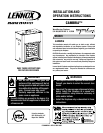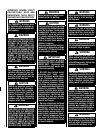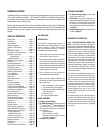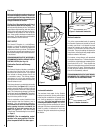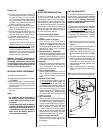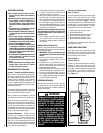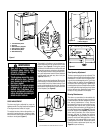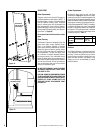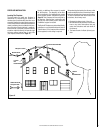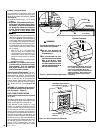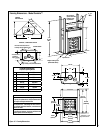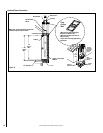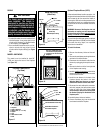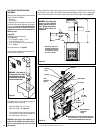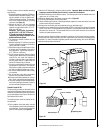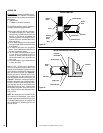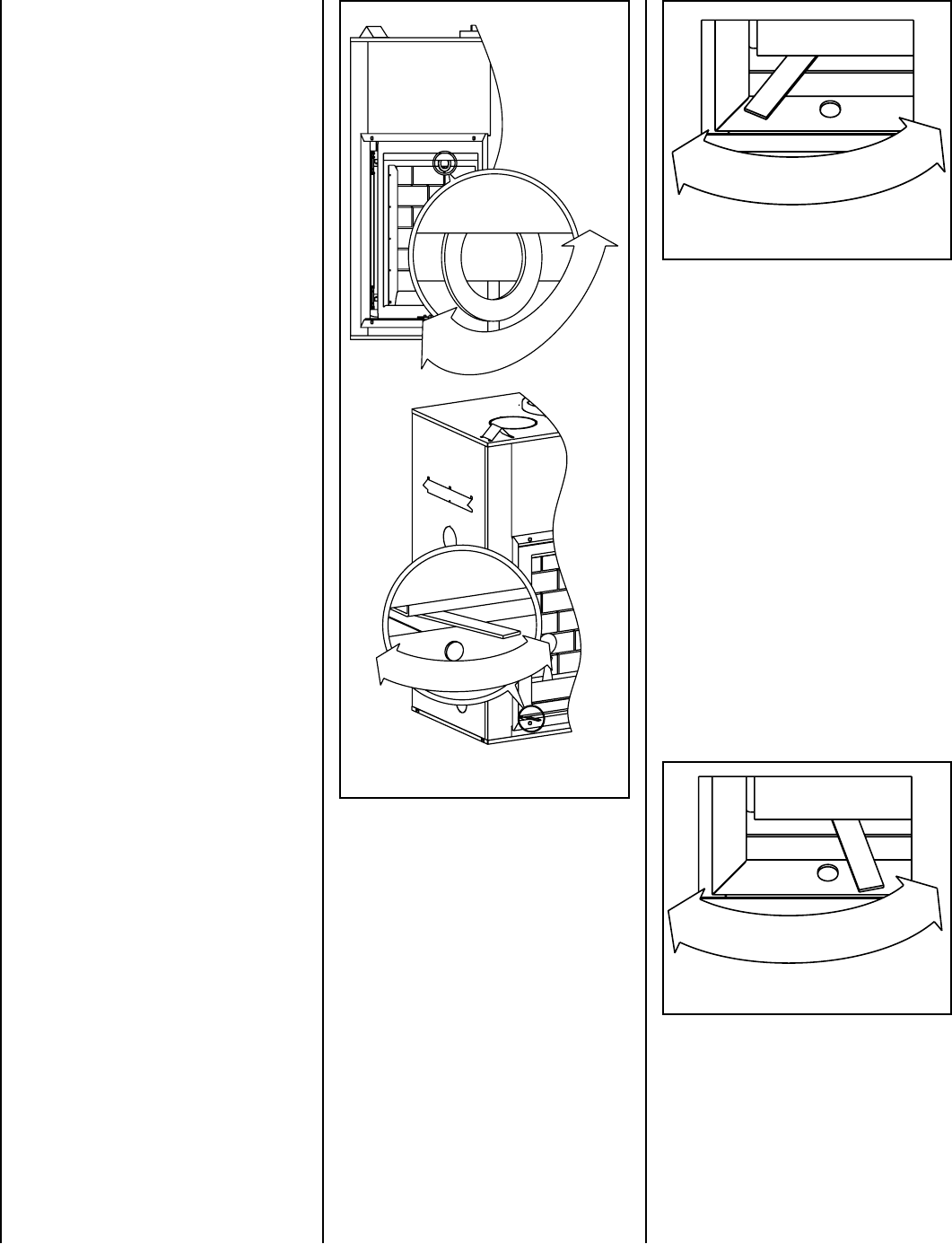
Accelerated Combustion
The maximum heat output for the Cambria
fireplace is achieved by burning with the door
closed and the combustion air opened. How-
ever, it will be necessary to reload with wood
every hour. This is the least efficient method
of burning the Cambria fireplace. Use caution
when burning with the combustion air control
wide open. Only burn cordwood in this manner.
Small dry pieces of softwood will burn very
intensely using this method and may damage
the firebox.
Medium Combustion
This is the recommended mode of operating
the Cambria fireplace and should be the one
normally used since it will deposit the least
amount of creosote on the glass and in the
chimney. The combustion air control must be
3/4 closed .The precise setting will depend on
many factors, including chimney length and the
moisture content of the wood.
For instance, a long chimney will necessitate
closing the damper more. To obtain the proper
combustion, close the damper completely, then
open it about 1/4” to 1/2”. Three medium size
pieces of cordwood burning on a bed of hot coals
will burn about 1-2 hours. Softwoods may be
burned using this method but the combustion
time will be substantially reduced.
FOR MAXIMUM HEAT OUTPUT, WE STRONGLY
RECOMMEND THE INSTALLATION OF THE
OPTIONAL HOT AIR DUCTING SYSTEM.
Figure 2 -
Accelerated Combustion
Figure 3 - Medium Combustion
Figure 1
Open
Ouvert
Closed
Ferme
Open
Ouvert
Closed
Ferme
First Fires
Before using the fireplace make sure to remove
the plastic wrapping on the door. Remove all
remaining glue with mild soap. Make sure the
doors are properly adjusted, thus avoiding color
change to finish due to overheat.
The first 5 or 6 fires should be small fires of
short duration (about 30 to 60 minutes). This
will help cure the refractory bricks. The first fires
may produce slight smoking (and odor) due to
drying of the paint and steel and any dust ac-
cumulated on the fireplace will burn off at this
time. It may set off a smoke alarm located in the
same room. For this reason the room should be
well ventilated for the first few fires.
HEAT OUTPUT
The Cambria™ fireplace is a mid-efficiency
fireplace. In spite of the heat that the Cambria
fireplace can deliver, it should not replace the
main source of heat in your home. This fireplace
will bring extra warmth and ambiance to your
home by distributing its heat as described further
in the manual.
FOR MAXIMUM HEAT OUTPUT, WE STRONGLY
RECOMMEND THE INSTALLATION OF HOT AIR
DUCTING SYSTEM (See Page 14).
Combustion Control and Chimney
Damper
The Cambria fireplace includes a combustion
air control that sets the flow of air entering
the firebox and control the fire. The fireplace
also includes a chimney damper that is not
a combustion control. The chimney damper
must always be in fully open position when
the fireplace is used and should be closed only
when all ashes are cold.
The chimney damper is controlled by the handle
inside the firebox (see Figure 1-A). It is in closed
position when the handle is visible (front) and
in the open position when not visible (pushed
back). The combustion air damper is controlled
by the lower handle (see Figure 1-B). The control
can be moved from open position at left all the
way to the close position at right.
This air combustion control should be in the
closed position when the fireplace is not in
operation. This will minimize air infiltration.
The combustion air control should be opened
before opening the doors to minimize the
possibility of back draft coming into the
room (see Figure 1-A). Also see Smoking
- Causes and Troubleshooting for more details
(on Page 5).
WARNING: The air combustion control
must be in the open position if the fire-
place is operated with the doors open.
Chimney
Damper
(A)
Open
Back
Closed
Front
Combustion Air
Control (B)
Closed
Open
NOTE: DIAGRAMS & ILLUSTRATIONS ARE NOT TO SCALE.
4



